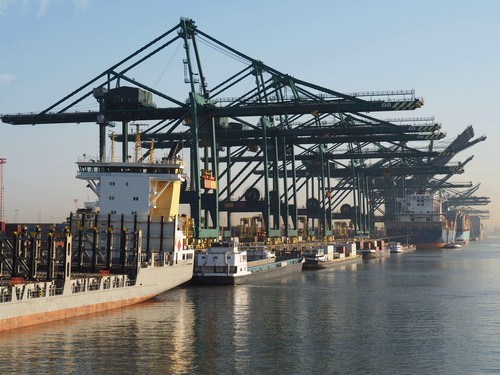Belgian shipping company CMB has pledged to achieve net zero carbon status in the course of the current year.
The Antwerp-based group, which is celebrating the 125th anniversary of its foundation this year, is relying heavily on offsets to achieve its goal.
It says it is supporting certified climate projects in developing countries and has acquired so-called voluntary carbon units in such countries as Zambia, Guatemala and India.
But the group, which says that its 2020 net zero CO2 target is part of its long-term drive to eradicate its carbon emissions completely by 2050, is already investing in low and zero carbon ships and engines.
The group is making a particular effort to develop hydrogen-powered ships, including what it says will be the world’s first hydrogen-powered tug, the Hydrotug, which is due to go into service in the port of Antwerp in summer 2021.
It is also working on a series of other small vessels, including a hydrogen-powered passenger vessels with Japanese company Tsuneishi Facilities & Craft, an 80-passenger ferry for use in Japanese inland waters, and a Windcat Workboats vessel for offshore wind farm personnel movement. This latter vessel is due into service at the end of this year.
In carrying out this work, it is largely relying on its recently acquired engineering arm CMB Tech. This company, which is based in Brentwood, England, and was formerly known as Revolve Technologies was acquired by CMB in July last year as part of a deliberate effort on the part of the Belgian group to develop its hydrogen combustion know-how.
The Saverys family owned CMB is currently active in three main shipping sectors. It is represented in drybulk shipping by Bocimar, in the operation of small and medium-sized container ships by Delphis and, in the operation of chemical tankers by Bochem.
Andrew Spurrier
Western European Correspondent







